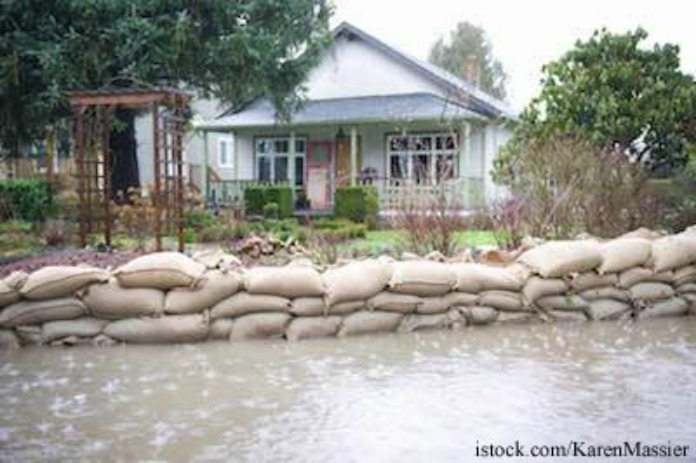Wondering about food safety after a flood? Here is what the U.S. Department of Agriculture’s (USDA) recommends:
If you have advance notice of heavy rains that may produce floodwaters, buy jugs of water and shelf-stable foods that can feed your family for a few days and store them in an area flood waters are not likely to reach. Keep a jug of liquid bleach and a cooler in the same area. Find out where you can purchase dry ice.
Buy appliance thermometers for your freezer and fridge. In the freezer, gather food together this will help it stay cold longer. If you lose power, a refrigerator will keep food cold for about four hours if you keep the door closed. A full freezer will keep food at a safe temperature for about 48 hours, a half-full freezer will keep food at a safe temperature for 24 hours. Keep the door closed as much as possible. Before you eat food from a powerless fridge or freezer, check the temperature, if the thermometer reads 40° F or below, the food is safe.
If there is no thermometer in the freezer, check each package. If food still contains ice crystals or is at 40°F or below when checked with a food thermometer, it may be safely refrozen. Perishable food (such as meat, poultry, fish, soft cheeses, milk, eggs, leftovers and deli items) that has been kept in a refrigerator or freezer above 40° F for two hours or more should be thrown away.
Throw away all foods that come into contact with floodwaters that are not in waterproof containers such as cans or jars. Containers that are not considered waterproof include those with screw-caps, snap lids, pull tops, and crimped caps. Wooden cutting boards, plastic utensils, baby bottle nipples and pacifiers should also be thrown away if they have had contact with floodwaters.
Metal pans, ceramic dishes and utensils can be saved. Wash them with hot soapy water and sanitize them by boiling them in clean water or by immersing them for 15 minutes in a solution of 1 tablespoon of bleach per gallon of drinking water. Use the same bleach solution to wash pans, dishes, utensils, can openers and countertops.
Never taste food to determine if it is safe. And when in doubt, throw it out!





